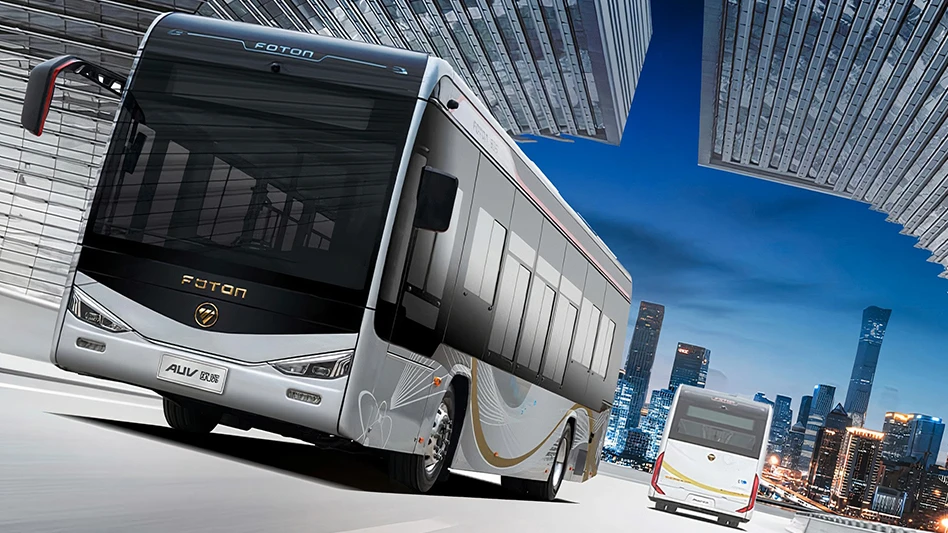
Courtesy of Exel Composites
Finnish composite manufacturer Exel Composites has secured a new project with Chinese automotive manufacturer Foton Bus and Coach Company to supply pultruded glass fiber composite profiles. The agreement, signed in February 2024, will see the glass fiber profiles manufactured locally in China. These will reduce both the maintenance requirements and weight of the vehicles, due to composites’ corrosion resistant and lightweight properties. Additionally, the geometric design flexibility of composites enables wider structural engineering possibilities than traditional metals, such as steel and aluminum.
Foton Bus and Coach Company, a subsidiary of the Chinese BAIC company, manufactures a wide range of commercial vehicles, including trucks, buses, vans, and construction vehicles. In line with industry trends, Foton has shifted its focus to electric and hydrogen vehicle manufacturing, particularly in the bus and coach sector.
Exel Composites will produce a series of structural composite profiles for many different bus models. These profiles, including fiber reinforced plastic (FRP) side panels, skirt panels, and fake roofs, are manufactured using pultrusion technology with glass fiber composites. These offer greater tensile strength and durability while reducing density by 30% compared to traditional aluminum profiles.
“Exel’s profiles improve our design process in ways that are only achievable with composite materials,” explained Mr. He, head of group R&D for Foton Bus and Coach Company. “The geometric possibilities are key for complex-shape structural components and weight savings of fiberglass compared to aluminum reduces strain on both the chassis and the battery. What’s more, composite panels don’t rust and can last for decades.”
“Having refined the pultrusion manufacturing process over many decades, we can produce complex geometric profiles that match the strength of traditional aluminum, while being much lighter," explained Kathy Wang, executive VP for industrial solutions business unit at Exel Composites. "At the same time, the finished profile has a smooth surface finish, which eliminates the need for further processing.
“Furthermore, unlike aluminum extrusions, which are limited to 0.3 m in width and require multiple connections for larger panels, our composite profiles can extend up to 1.2 m wide and 12 m long. This ensures structural integrity and solidarity.”
Exel Composites can also use pultrusion for applications including interior air ducts, luggage racks, side shields, and flooring – and pull-winding for small diameter tubes, further reducing the energy consumption and weight of buses.
Latest from EV Design & Manufacturing
- Powering homes with EV batteries could cut emissions, save thousands of dollars
- Meviy introduces stainless steel passivation option for CNC, sheet metal parts
- December Lunch + Learn webinar with Fagor Automation
- December Lunch + Learn webinar with LANG Technik + Metalcraft Automation Group
- EVIO makes public debut with hybrid-electric aircraft
- Redesigned pilot step drill triples performance
- Green Energy Origin expands battery electrolyte manufacturing in North America, Europe
- What’s next for the design and manufacturing industry in 2026?





